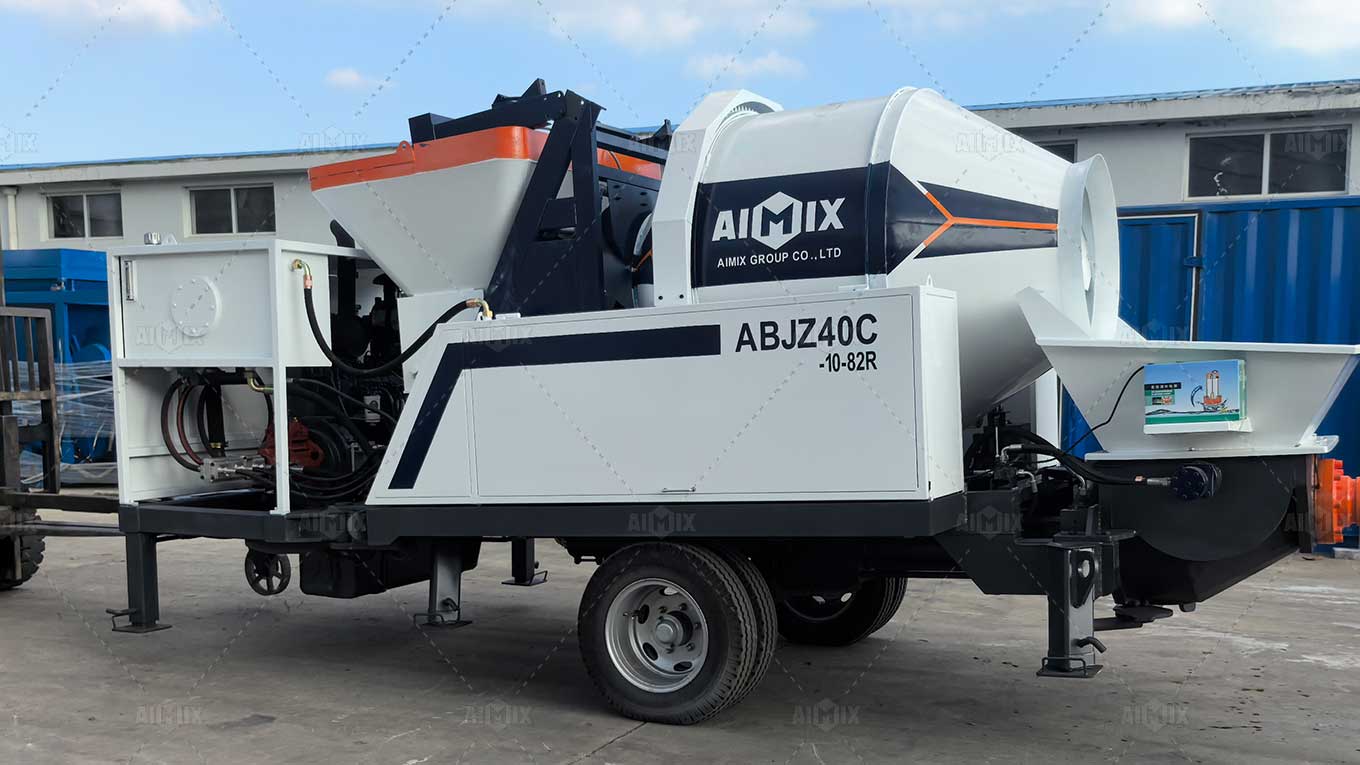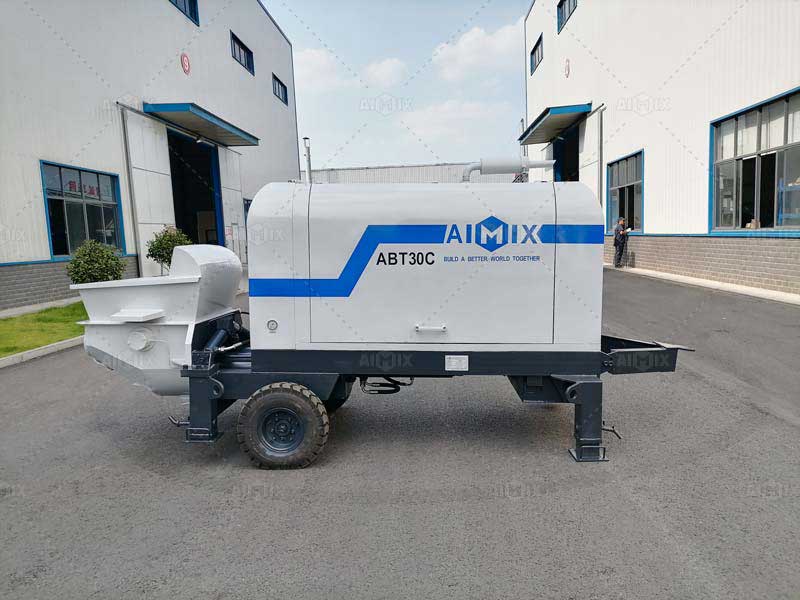Concrete is an incredibly versatile construction material, known for its ability to be molded into various structures, from buildings and roads to furniture and sculptures. To facilitate the efficient use of concrete in construction projects, a concrete pump serves as a valuable piece of equipment. This machine transports liquid concrete through suction or pressure, directing it to small trenches or molds as required. Various industries, whether large or small, rely on concrete pumps to optimize and expedite the pouring and setting process, offering distinct advantages over traditional methods. When considering the purchase of a small concrete pump for sale, there are several essential factors to keep in mind to ensure you select the right model for your needs.
Key Factors to Consider When Buying a Small Concrete Pump
1. Pump Capacity
One of the most critical specifications to evaluate is the pump capacity, which refers to how much liquid concrete the machine can move over a defined period. This measurement is generally provided in gallons per minute (GPM) or cubic meters per hour (m³/h). Higher GPM or m³/h values indicate that the pump can deliver concrete more quickly, which is often essential for maintaining project timelines on busy job sites.
2. Pump Pressure
The pump pressure signifies the force with which the concrete is pushed through the pipes. This is measured in pounds per square inch (psi) or bars. A higher psi or bar rating allows the pump to exert greater force, enabling it to move concrete more efficiently. When looking at different models, consult the manufacturer’s specifications to determine the appropriate psi or bar rating suitable for your construction projects.

3. Pipe Size
The diameter of the pipe through which the concrete will flow is another critical aspect to consider. Pipe size is typically measured in inches (in) or millimeters (mm). A larger pipe size permits more substantial volumes of concrete to be transported simultaneously; however, it’s worth noting that a larger pipe size may result in slower pump speeds. Larger pipes are particularly beneficial when transporting concrete over extended distances or through hoses experiencing significant resistance.
4. Pump Weight
The weight of the pump itself plays a vital role in portability and ease of transportation. Measured in pounds (lbs) or kilograms (kg), heavier pumps may become cumbersome to move between job sites. When selecting a mini concrete pump, prioritize lighter models that offer ease of handling without sacrificing functionality.
5. Delivery Distance
Delivery distance refers to how far the pump can transport liquid concrete from the machine to the point of application. This measurement is usually given in feet (ft) or meters (m). A greater delivery distance reduces the need for frequent refills, resulting in less downtime and increased productivity on the construction site.

6. Power Requirements
Most small concrete pumps operate within a voltage range of 110 to 220 volts. It’s crucial to check the pump’s specifications to ensure compatibility with your work area’s power supply. This consideration ensures that the pump operates efficiently without unexpected interruptions.
7. Warranty Options
Warranties are a critical aspect of any equipment purchase. While many concrete pumps typically come with a standard one-year warranty, some models may offer extended warranties. Make it a point to compare warranty policies across different models to ensure you receive the best coverage for your investment.
8. Price Considerations
Small concrete pumps are available at various price points depending on their features and specifications. It’s advisable to compare the concrete pump price to find the best deal while ensuring that you’re not compromising on quality or performance.
9. User-Friendliness
Ease of use is an essential factor when selecting a small concrete pump. While most models are designed to be user-friendly, it is still vital to thoroughly read the instruction manual before operating the machine. Familiarity with the pump’s features helps prevent potential damages and complications. Opt for models with a smaller learning curve to simplify the training process for operators.
10. Manufacturer’s Reputation
When investing in a small concrete pump, opting for a reputable manufacturer is crucial for ensuring you get a quality product that will withstand the demands of various construction tasks. Conduct research on the different brands and read customer reviews to gauge their reliability and performance history. Choose a pump from AIMIX Group manufacturer here: https://aimixconcretesolution.com/.
Conclusion: Making the Right Purchase Decision
A small concrete pump can be an invaluable asset on any construction site, significantly enhancing efficiency and productivity. By considering the critical factors outlined above—pump capacity, pressure, pipe size, weight, delivery distance, power requirements, warranty options, price, ease of use, and the manufacturer’s reputation—you can make an informed decision when selecting the pump that best meets your needs.
Investing in the right equipment will not only optimize your construction processes but also save you time and money in the long run. For further information and to explore a range of models, visit this page.
